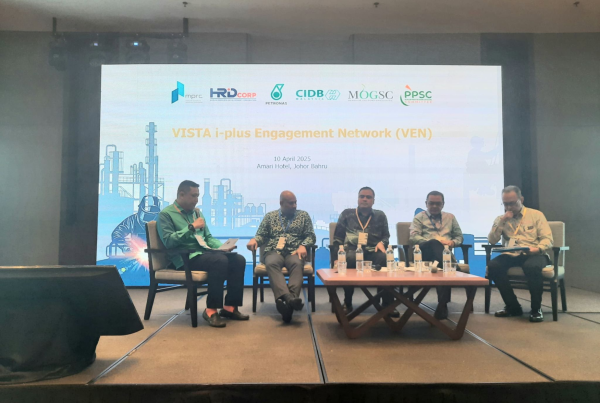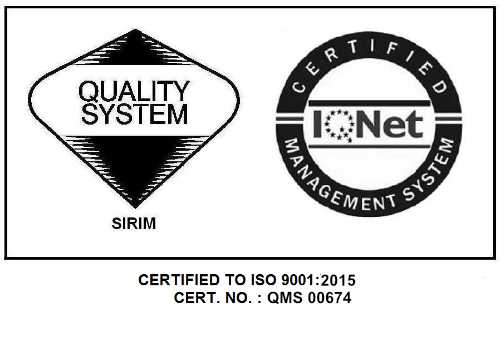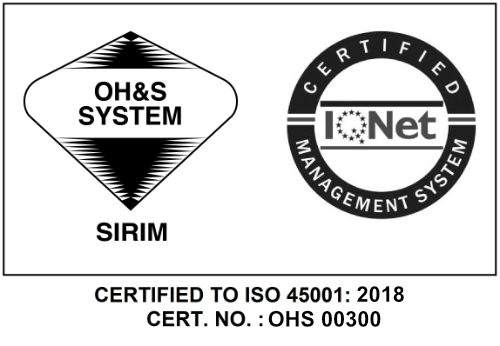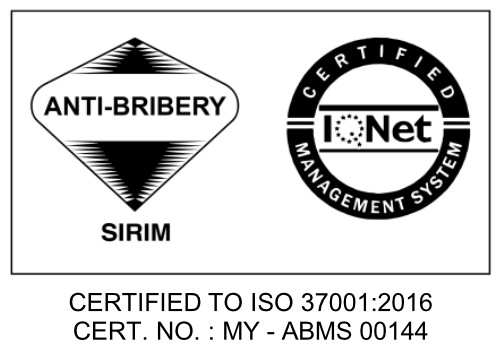As one of the major economic drivers in Malaysia, the construction industry is poised for steady growth over the next few years. With strategic government initiatives and a slew of mega projects in the pipeline, 2020 is definitely the year to look out for.
The future certainly looks optimistic for the Malaysian construction industry in 2020, as far as CIDB Malaysia Chief Executive Datuk Ir. Ahmad ‘Asri Abdul Hamid is concerned. “With the advent of several public projects, including mega projects, the construction sector has shown some signs of recovery.” He cites projects such as the Penang Transport Masterplan, Sarawak Walkabout Project, Bandar Malaysia, Bukit Bintang City Centre and the revival of the ECRL project being the catalysts of the growth. “New packages for the Pan Borneo project will be tendered out this year now that the project delivery partner (PDP) issues are resolved. The Kuala Lumpur-Singapore High Speed Rail Project (HSR) will also be revived, albeit at a lesser but still substantial amount.”
“As such, I expect the construction industry’s growth will take off after the second quarter of this year and achieve a full recovery of 5 to 6% in 2021, which is a strong figure in our industry,” says the 32-year veteran of the industry.
Technology: The Key Driver Of Transformation
With 2020 being the final year of Construction Industry Transformation Programme 2016-2020 (CITP), CIDB continues to focus on achieving what has been set out in the national agenda. At the same time, the team is hard at work in preparing a strategic plan for initiatives beyond 2020. This plan will focus on Industrial Revolution 4.0 (IR 4.0) in construction, emphasising the use of technology, particularly on Industrialised Building System (IBS) and Building Information Modelling (BIM).
Datuk ‘Asri is pleased with the progress of IBS in recent times, with 81% of government projects using this technology and the private sector not lagging too far behind. The secret sauce behind this significant success, he emphasised, is none other than enforcement. “IBS has been around for the past 20 years, but it is only when the government mandated that all public projects costing RM10mil and above must use IBS that its adoption rate dramatically rose.”
However, when it comes to BIM, he admits that it still has a long way to go. It is common knowledge that BIM offers great benefits to those who choose to use it, such as cost savings, productivity growth, increase in end product quality and reduction of wastage. Yet the BIM adoption rate is only 17% as compared to 71% in the US, 60% in South Korea and 54% in the UK. “We have put forth many initiatives to promote B I M including comprehensive training and such, but the progress has been very incremental,” he laments. “To truly effect change and transform the construction industry, we need to come up with new ways of doing things, i.e., using BIM instead of the traditional methods.”
Equipping Local Talents
Datuk ‘Asri is a firm believer of equipping young Malaysians with the skills and support they need to be successful in a construction career. “The youth of today are tomorrow’s leaders, and we are committed to creating an environment that empowers and supports them beyond their training programmes in CIDB.”
“Our ‘Jelajah Technical and Vocational Education and Training (TVET) Pembinaan’ roadshows in Sarawak, Terengganu and Pahang have garnered a good response from the rural folks, which is where most of the unemployed youths reside,” Datuk ‘Asri explains. He reveals that most of the rural residents are unaware of TVET’s comprehensive programmes that are available to them for free. “The roadshows are eye opening and life-changing events for them, which will hopefully curb the unemployment rate while providing the construction industry with much needed skilled local workers.”
He divulges that the Construction Academy of Malaysia (ABM), CIDB’s assessment centre and training arm, has been offering high-impact training for the past four years with a focus on making their graduates employable and able to secure high-wage jobs. The private training sector is not interested in conducting these types of training courses, i.e., welding and operating machines, as it involves a steep investment in welding machines, cranes, and the like. “Now, we have moved a step further by way of an apprenticeship programme in collaboration with construction companies. After our trainees have completed their training with us, they will work with these companies for three months and receive their salary from us. At the end of the three months, the company will employ them if they have successfully gained the skills required for their work. Our efforts have resulted in a significant improvement in the employment rate through this programme,” he explains.
In 2018, CIDB spearheaded an innovative entrepreneurship training programme under ABM where graduate trainees are given a van as well as all the tools needed to perform air-conditioning repair and maintenance for six months. “We allocate four trainees to each van and mentor them on how to do the business. We will also assist in getting them jobs to service some of the government buildings. After six months, we will return their profits obtained during the programme which will serve as capital to start their business. Our next batch of trainees will then utilise the van,” he says, adding that electrical and renovation skills courses will be incorporated into the programme in the near future. The graduates of this entrepreneurship programme are now contractors, experienced in doing maintenance and installation works. He finds this to be a more effective training method as it reduces the drop-out rates substantially and provides sustainable employment upon completion of the training programme.
Strenghtening Skills Assessment
To address the issue of low quality workmanship caused by the use of unskilled workforce in construction sites, CIDB has taken steps to recognise skilled construction workers who passed the Skills Competency Assessment Exam (PKK). Skilled workers local workers who pass the test will be awarded the CIDB Skills Efficiency Certificate (SKK) while the Foreign Workers Certificate (PKPA) will be given to foreign and permanent residents. “Our goal is that only employees with the SKK are eligible to perform work that requires skills at the construction site. We also aim to strengthen the SKK by developing and raising its standards so that this certification is recognised nationwide. Then it can be a valid career path for future supervisors and project managers,” he states.
By 1 Jan 2020, all foreign construction workers must be assessed and accredited by CIDB in their host countries before they can work here. “This is to ensure that the foreign workers working in our construction industry are proficient at performing skilled work on-site. To date, we have accredited 36 assessment centres involving nine host countries. We have been championing this for the longest time as a majority of our contractors employ foreign workers,” Datuk ‘Asri says.
A Lasting Legacy
“I see my role and major contributions to be strategizing and putting in place the necessary components and gamechangers, in collaboration with others, for the transformation of the construction industry,” the affable man says. He deems CITP as one of his greatest legacies, having just taken over the helm of CIDB’s Chief Executive at the cusp of the strategic plan’s implementation in 2016. An advocate for making good things greater, he initiated the review of CITP in 2018, which was midway of its implementation, to make it more effective.
Apart from the aforementioned successful programmes and initiatives, other significant achievements during his tenure as CIDB’s Chief Executive include having QLASSIC gaining wide recognition as a measure of Quality in Construction. The Occupational Safety and Health in Construction Industry (Management) (OSHCIM) will soon be enforced, putting the responsibilities of safety not only to contractors but also to consultants and clients. The Anti-Bribery Management System (ABMS) and other integrity control systems and practices will be a priority for companies with the enforcement of the Corporate Liability Act. “Our rating tools, MyCREST, or the Malaysian Carbon Reduction and Environmental Sustainability Tool and the sustainable infrastructure rating tool (INFRASTAR) would also be widely used by the industry as a measure of sustainability.”
The SCORE Programme (also known as ‘Penilaian Keupayaan dan Kemampuan Kontraktor’) rating is now accepted by several agencies, particularly JKR, as a tool to gauge the capability of contractors. He was especially enthused by the considerable interest shown by the government agencies and private sector clients to engage the 4- and 5-star rated SCORE contractors for their critical and mega projects. “This creates an impetus for contractors to improve their star rating so that they can participate in those projects.”
A Series of Stellar Wins
The implementation of the Centralised Information Management System (CIMS) in January 2019, has heralded CIDB as an example to follow in terms of service delivery excellence, productivity and transparency. “With CIMS, all of the contractors and construction personnel can register with us online without having to walk into our offices. We have seen a reduction of registration staff from 115 to a mere 16 people. The registration processing was dramatically reduced from 11 days to 12 minutes, and we can now process 20,000 registrations per month as compared to 8,000 preCIMS,” Datuk ‘Asri beams.
With regards to sustainability, CIDB will be able to provide a more reliable carbon dioxide (CO2) reduction target for the construction industry this year. “We shall also be able to implement the policy of large projects to be measured against sustainability requirements through the Ministry of Finance’s circulars, i.e., MyCREST for all building projects valued more than RM50m and INFRASTAR for all projects above RM100m. Meanwhile, CIDB will continuously promote and educate the industry on the importance of sustainability in construction projects.
When asked to envision how the Malaysian construction industry would be like in five years, he foresees that it would become a modern industry, where technology is effectively adopted and utilised. “The transformation of the industry in the next five years would be rapid because of the numerous technological advances available. It will look vastly different from what it is today. Furthermore, the adoption of technology by other countries like China would provide the impetus for the Malaysian construction industry to transform.”
Under Datuk ‘Asri’s capable and visionary leadership, CIDB is well-poised to steer the construction industry through the winds of change ahead. “These are exciting times for the construction industry. Those who treat this profession with the respect it deserves and are willing to use technology and be innovative will definitely thrive and reap its manifold benefits. No one can afford to be left behind.”















